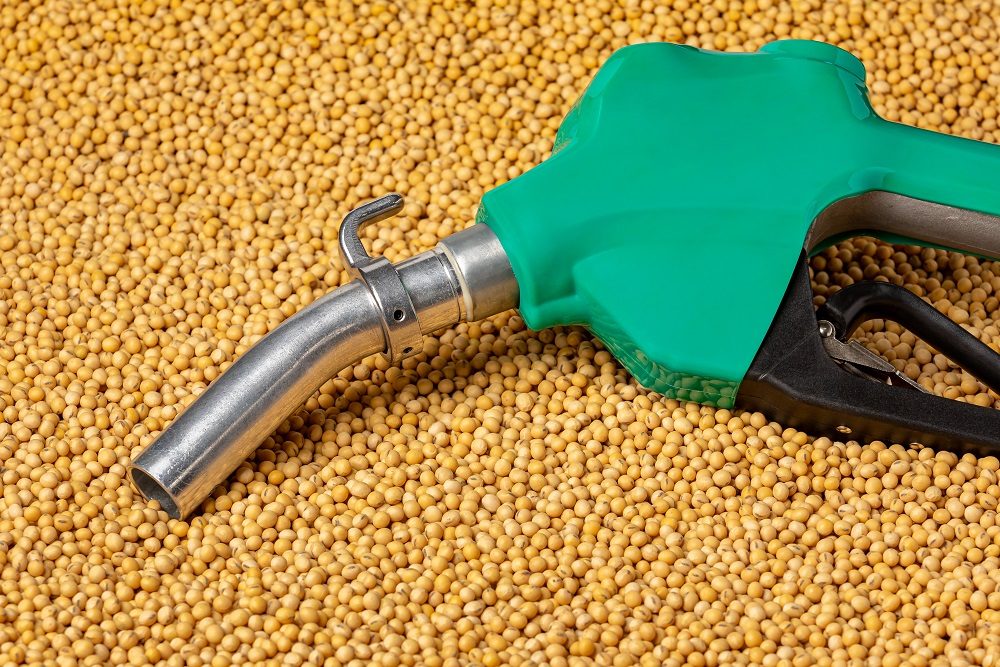Ag and Biofuels Leaders Applaud EPA’s RVO Proposal

The Environmental Protection Agency (EPA) has released its long-awaited Renewable Volume Obligation (RVO) proposal for 2026 and 2027 under the Renewable Fuel Standard (RFS). That proposal makes significant increases in volume requirements for biomass-based diesel—from 3.35 billion gallons in 2025 to 5.61 billion gallons in 2026, or a 67-percent increase.
Altogether, refiners would be required to blend 15 billion gallons of conventional biofuels in both 2026 and 2027.
The announcement also includes a key provision to discount Renewable Identification Number (RIN) credit values for foreign fuels and feedstocks, effectively prioritizing soybean oil and ethanol produced in the U.S. Under the proposal, biofuels and feedstocks produced outside the U.S. will receive only 50-percent of the RIN value compared to those produced within the U.S.
National ag and biofuels leaders expressed their approval for EPA’s biofuel proposal.
Caleb Ragland, President of the American Soybean Association (ASA):
“As we celebrate the 20th anniversary of the Renewable Fuel Standard, the American Soybean Association applauds the work of President Trump, Administrator Zeldin and Secretary Rollins in promoting American energy dominance and strengthening a key domestic market for U.S. soybean farmers. The significant increase in proposed volumes for biomass-based diesel will support soybean farmers, soybean processors, and biofuel producers in rural America, and serves as a much-needed win for our communities. We thank the Trump Administration for recognizing and supporting this vital value chain for U.S. agriculture.”
Kenneth Hartman, Jr., President of the National Corn Growers Association (NCGA):
“We are thankful to President Trump and Administrator Zeldin that the EPA has released these robust RVO numbers in a timely manner. This action provides a significant certainty to corn farmers across the country who rely on a stable biofuels industry.”
Zippy Duvall, President of American Farm Bureau Federation (AFBF):
“Farm Bureau applauds the Environmental Protection Agency and Administrator Lee Zeldin for recognizing the importance of biofuels for farmers and America’s families. EPA’s proposed Renewable Fuel Standard for 2026 and 2027 would increase domestic biofuel production, prioritize home-grown crops, and enable producers to meet the demands of emerging international markets. America’s families who choose to use biofuels could see much-needed relief at the gas pump, with savings of 10 to 30 cents per gallon.
“Renewable fuels have been a tremendous success story for the country and our rural economy. The RFS has reduced greenhouse gas emissions, and created markets for farmers who answered the call to help America become energy independent.”
Geoff Cooper, President and CEO of the Renewable Fuels Association (RFA):
“Today’s proposal is an important step toward achieving President Trump’s vision of lower gas prices, a stronger agriculture industry, and American energy dominance. The volumes proposed today provide crucial growth opportunities for U.S. ethanol producers and farmers, while boosting the supply of lower-cost, American-made energy. We thank Administrator Lee Zeldin and his team at EPA for listening to stakeholders from agriculture and the entire fuels industry as this proposal was being crafted.”
“This proposal sends a very positive and powerful signal to U.S. renewable fuel producers and farmers. It represents an excellent starting point for the 2026 and 2027 RVO discussion,” Cooper said. “We look forward to providing more feedback to EPA on the proposed volumes during the public comment period, and we’ll continue to underscore the vital importance of a strong RFS to America’s rural communities.”
“The entire supply chain is seeking certainty regarding EPA’s plans on SREs, and today’s proposal helps to clarify the agency’s approach moving forward,” Cooper said. “We agree that the agency has a legal obligation to reallocate any exempted blending volumes, consistent with the approach adopted by EPA near the end of President Trump’s first administration. However, EPA’s top priority for SREs should be maintaining a high standard for evaluating petitions and continuing to take a restrained and limited approach. The marketplace needs to be reassured that the RVOs published by EPA are real and will not be watered down or eroded by SREs.”
Kurt Kovarik, Vice President of Federal Affairs for Clean Fuels Alliance America:
“Today’s RFS proposal is a welcome and timely signal to U.S. biodiesel, renewable diesel and SAF producers as well as America’s farmers and agricultural businesses. The industry has made major investments in domestic production capacity and feedstocks to meet America’s energy needs and provide consumers affordable, cleaner fuels. We anticipate this will have a tremendous beneficial impact for American farmers and agricultural communities and we look forward to working with President Trump and EPA Administrator Zeldin to finalize this rule and fully unleash U.S. clean fuel producers.”
“Our industry supplied more than 5 billion gallons of biodiesel, renewable diesel and SAF to the U.S. market in 2024, and is poised to deliver more in 2026. The U.S. biomass-based diesel industry supports 107,400 jobs and generates $42.4 billion in economic activity. Continued market growth and stability through the RFS will enable more economic opportunities, create more jobs, and revitalize America’s agricultural sector.”
“We appreciate Administrator Zeldin’s commitment to find effective solutions to the remaining backlog of small refinery exemptions. We look forward to working with him to ensure that those solutions do not erode the U.S. market for biomass-based diesel and harm American farmers and consumers.”
